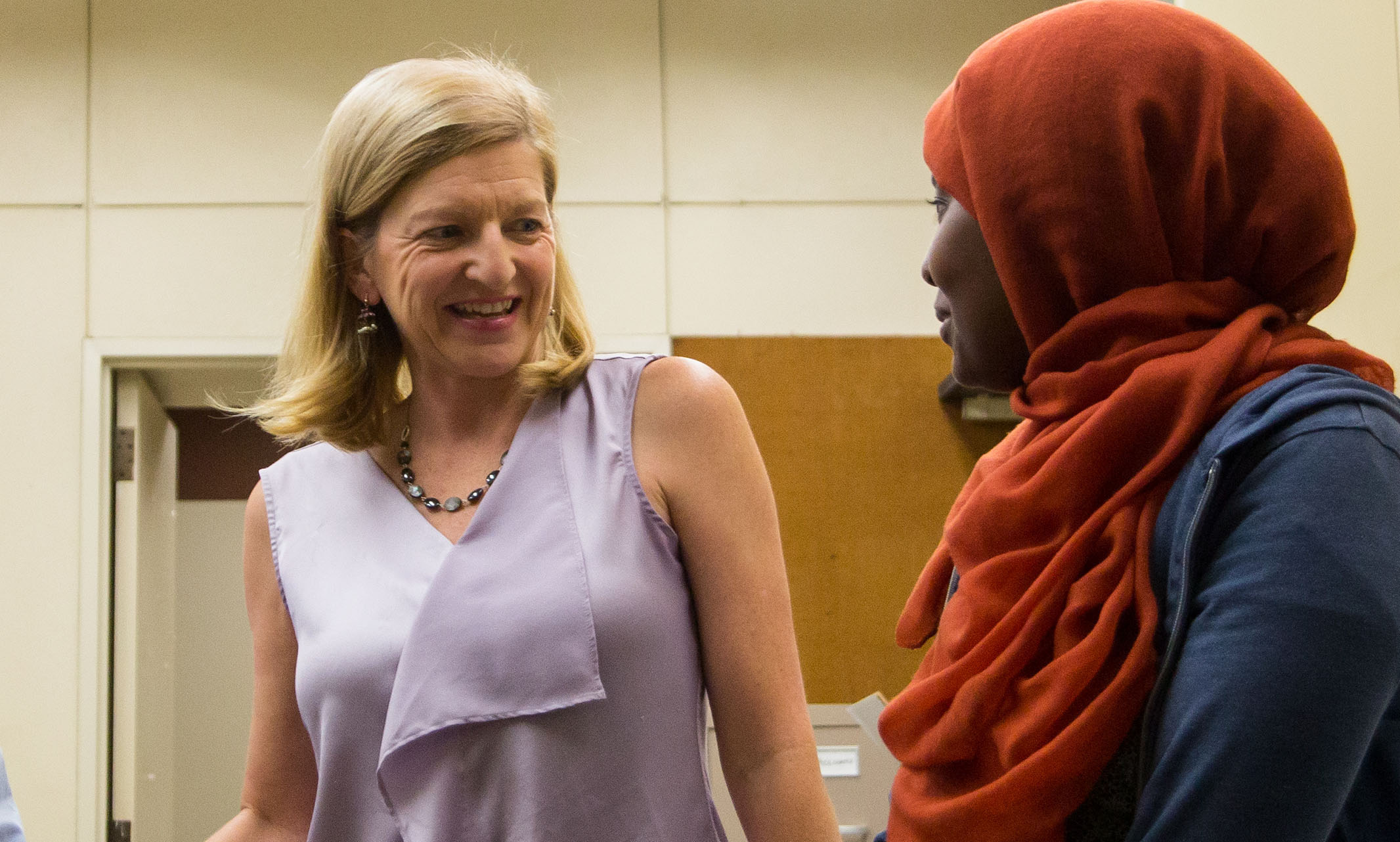
Study is part of part of a 5-year, $3 million projected supported by the National Institutes of Health
UMKC School of Medicine researcher Paula Monaghan Nichols, Ph.D., has received a $867,000 National Institutes of Health grant to look into a treatment that minimizes neurological side effects for a chronic lung disease that affects a significant number of premature babies.
The project is part of a multi-principle investigator initiated proposal between Monaghan Nichols, Dr. Venkatesh Sampath from Children’s Mercy Hospital Kansas City, and Dr. Donald DeFranco at the University of Pittsburgh School of Medicine, Pennsylvania, that totals more than $3 million in NIH funding over a 5-year period.
The research will explore the use of Ciclesonide (CIC), an inhaled steroid currently used to treat asthma, as an alternate therapy for bronchopulmonary dysplasia (BPD). BDP causes tissue damage in the tiny air sacs of the lung leading to severe respiratory distress. It is often the result premature birth and mechanical oxygen ventilation. The disease touches nearly seven of 10 infants born before 28 weeks of gestation. In the United States, that is an estimated 10,000 to 15,000 babies a year.
There is currently no cure for BPD but clinical treatments to limit inflammation and the progression of BPD include long-acting synthetic drugs such as dexamethasone. Those drugs, however, also come with a significant risk of adverse effects on a child’s systemic growth and neurodevelopment that can lead to long-lasting changes in brain structure and function.
Monaghan Nichols, associate dean for research, professor and chair of Biomedical Sciences, said infants that acquire BPD face significant mortality rates. Survivors often have recurrent hospital visits, need for respiratory therapies and persistent limitations in pulmonary function.
“Therefore, there remains a need for a pharmacotherapy for BPD in neonates that will have beneficial anti-inflammatory and lung maturation effects, but limited adverse neurological side effects,” Monaghan Nichols said.
Preliminary studies have found that Ciclesonide, even with intermittent doses, can suppress acute lung inflammation with limited neurological alterations in rat models.
“Given the established safety of CIC in very young children, the clinical translation of our proposed studies to human neonates could be expedited, particularly given the limited, safe and effective therapeutic options available for treating or preventing BPD in susceptible premature infants,” Monaghan Nichols said.
Dec 07, 2021
New student program aims to encourage undergraduate research projects
Most students think research is something done by old men in lab coats, that it’s out of reach as they earn their undergraduate degree. Kimberly Johnson, Ed.D., is looking to change that.
Johnson has been an integral part of the UMKC community for the last twenty years in a variety of roles. Her passion, though, has always been working with and supporting students, particularly students of color. Her new role with Multicultural Student Affairs allows her an opportunity to do just that.
“Emerging Research Scholars is new a program with the UMKC Office of Multicultural Student Affairs that offers high-achieving, historically underrepresented students research projects in their field of study with faculty mentors,” Johnson said. “Scholars will receive academic, social and financial support while becoming integrated into the intellectual climate of the university.”
To utilize resources already available to UMKC students, Johnson reached out to Jane Greer, director of Undergraduate Research, to collaborate on this new student opportunity. Through this collaboration with the Office of Undergraduate Research and Creative Scholarship, students can be matched with a faculty mentor who can best support the student in their chosen field of research. The office was also able to offer work study positions to students in this first Emerging Research Scholars cohort.
“We've always tried to focus on making sure that our different opportunities serve the full range of UMKC students, including students from historically excluded groups,” Greer said. “We were especially excited that Dr. Johnson took on this new role in the Office of Multicultural Student Affairs and is working to create more ways to support these students in terms of getting them involved in research.”
Increasing student interest and involvement in research begins with encouraging them to conduct research in fields that interest them.
“This is not just for medical school, you could be studying arts and sciences, law, whatever field they want to study,” Johnson said. “We're hoping that they can find a faculty member or someone here in the Kansas City community that can help them. We do have some students who are not yet paired with the faculty member because we need more faculty mentors.”
Hannah Leyva, ’24, who just declared her major in Sociology, with an emphasis in Cultural Anthropology and minors in Spanish and Urban Studies, was one such student in this first cohort.
“I was not originally paired with a faculty mentor, and although this caused some uncertainty at first, it really was beneficial,” Leyva said. “As someone who has only recently declared their major, having the opportunity to reach out to professors instead of being automatically paired allowed me to investigate what kind of research I wanted to do. It is also overall helpful, as someone who wants to continue research in graduate school, to gain that experience of taking the initiative to network.”
Earth and Environmental Sciences student Amanda Mercier, ’22, is also thriving with the new connections she has made in the program, both student and faculty.
“Being part of the Emerging Scholar's Research Program this semester was incredibly motivating, insightful and helpful with regards to professionalism and getting involved in research or opportunities provided by the school or community,” Mercier said. “I felt that I constantly had a team of people that had my back and were a great source of information on any subject. I learned that the things that gave me anxiety or I struggled with, I wasn't the only one and didn't feel alone anymore.”
These conversations and the relationships that form from them are exactly what Johnson is hoping for. Her ultimate goal is for Emerging Scholars to gain experiences that will prepare them for graduate school and their future careers.
“Many of these students are just trying to get through their undergrad and are not thinking beyond,” she said. “How do we get our students, particularly students of color, thinking about grad school right now and what they need to do to prepare for it? If you're not prepared for graduate school, how does that help you in the workforce? If they're getting exposed to it, knowing that they can do research as an undergrad, they're more prepared to apply for graduate school.”
This is, of course, a main goal of the Office of Undergraduate Research, and Greer is thrilled that Emerging Scholars allows this connection with students that may not have been made otherwise.
“As the Emerging Scholars Program continues to grow, the future is really bright,” Greer said. “Dr. Johnson’s very astutely providing a lot of social support and structures to help students who may have never had these opportunities presented to them. We serve all students, and undergraduate research is something that every student UMKC should have an opportunity to get involved in.”
Leyva says she’s proud to be among the first cohort of this program and is grateful for the variety of opportunities the program can provide.
“What I found helpful about the Emerging Research Scholars is that there is a support system to help guide you through undergraduate research,” Leyva said. “It is not only your faculty mentor, but Dr. Johnson as well, and professionals who volunteer their time for research/graduate school workshops, and even other students in the program. It really is refreshing to be surrounded by others who understand the importance of diverse representation in research.”
If you are a UMKC faculty member interested in mentoring Emerging Research Scholars, please contact Kimberly Johnson at johnsonkimd@umkc.edu.
Nov 30, 2021
The 2022 Grammy Awards are set to air Jan. 31
The 2022 Grammy nominees have several ties to the UMKC Conservatory. Sandbox Percussion, a quartet comprised of UMKC Conservatory resident faculty members, received two nominations for their album, Seven Pillars. The quartet includes Ian David Rosenbaum, Jonny Allen, Victor Caccese and Terry Sweeney.
2020 Conservatory Alumni Achievement Award recipient Andrés Salguero and his wife, Christina Sanabria, were also nominated for Best Children’s Music Album.
Additionally, professor and pianist Alon Goldstein contributed to a nomination for producer Steven Epstein, whose nomination includes a composition by Goldstein.
KCUR featured KC nominees in a recent piece, which you can read here.
Nov 29, 2021
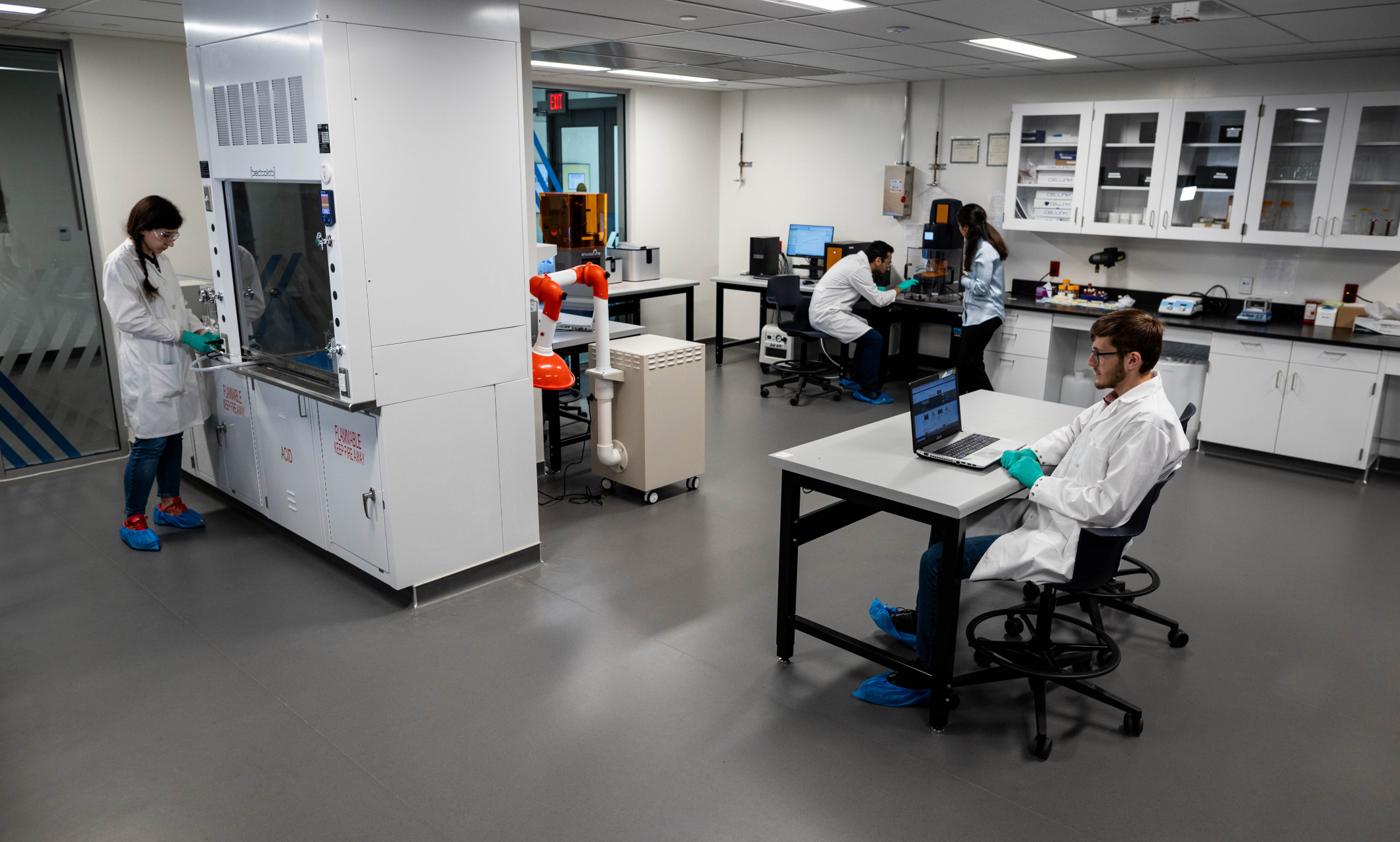
Research ranges from artificial intelligence to app design
In the second half of 2021, faculty from the School of Computing and Engineering have been awarded $906,604 in research funding.
Among those who have received funding is Reza Derakhshani, Ph.D., professor in SCE and head of the university's computational Intelligence and Bio-Identification Technologies Laboratory.
Derakhshani, whose research is primarily focused on eye vein pattern identity verification, was awarded $389,604 from the United States Army for a wearable deep vascular identification system.
Derkhshani is best known for leading the development of a biometric technology that makes the eye the only password needed to secure smartphones and mobile devices. The product, known as Eyeprint, was commercialized by the Kansas City-based startup EyeVerify.
The company was acquired by Ant Financial Services Group in 2016 for a reported $100 million. It maintains its headquarters in Kansas City and has been doing business as ZOLOZ since 2017. Derakhshani acts as the company's chief scientist.
In 2020, he was named a Fellow of the National Academy of Inventors.
Below is a complete list of research funding awarded:
$20,000 to Antonis Stylianou for statistical shape modeling for pediatric knees and ACL injury risk.
$150,000 to ZhiQiang Chen for an augmented reality pilot to demonstrate the flooding risk at 103rd Street in Kansas City, Missouri.
$100,000 to Jejung Lee for the development of GIS-based watershed need classification.
$50,000 to ZhiQiang Chen for HyperGLU: Hyperspectral and Geometric Learning for UAV-enabled plant species identification and localization.
$15,000 to Baek-Young Choi for using artificial intelligence without a data center for reliable wireless sensing and communication for space and extreme environments.
$15,000 to Sejun Song for the education of smart and reliable technologies for a future non-terrestrial network system.
$2,000 to Srvya Chirandas for a budgeting app that will be an outward-facing application that will give customers useful information about their full financial picture.
$55,000 to Amirfarhang Mehidizadeh for identification and understanding of major underlying mechanisms of asphaltene and deposition dynamics.
$389,604 to Reza Derakhshani for DVIS: A wearable deep vascular ID system.
$130,000 to John Kevern for timely and uniform application of curing materials.
Nov 29, 2021
UMKC law professor Sean O'Brien said that compensation for the exonerated Kevin Strickland is unlikely.
Strickland served nearly 43 years in prison before a judge threw out his conviction. O'Brien spoke with KCUR and the Kansas City Star following the judge's ruling to explain Missouri's laws on compensation for wrongful convictions.
Read his interview with the Star. (Subscription required)
Read his interview with KCUR.
Nov 23, 2021
Area schools struggle with students’ mental health
Marvalee Collins was interviewed by the Kansas City Star for a story titled, Your teen. Their trauma. Kansas City area schools struggle with students’ mental health, which sheds light on how the pandemic has exacerbated mental health concerns in schools, the need for more counselors, and how school counselors are a critical lifeline for children and teens facing mental health challenges.“The role of school counselors has transformed in recent years. They now serve the entire student body, focusing on both prevention and intervention by pinpointing three domains of learning: academic, social-emotional and career,” she said. “Having that mental health professional that is school-based is really critical. The school counselor may be the only mental health professional a student ever worked with”.Marvalee Collins is the coordinator of school counseling and practicum and internship at the UMKC School of Education.
Nov 23, 2021
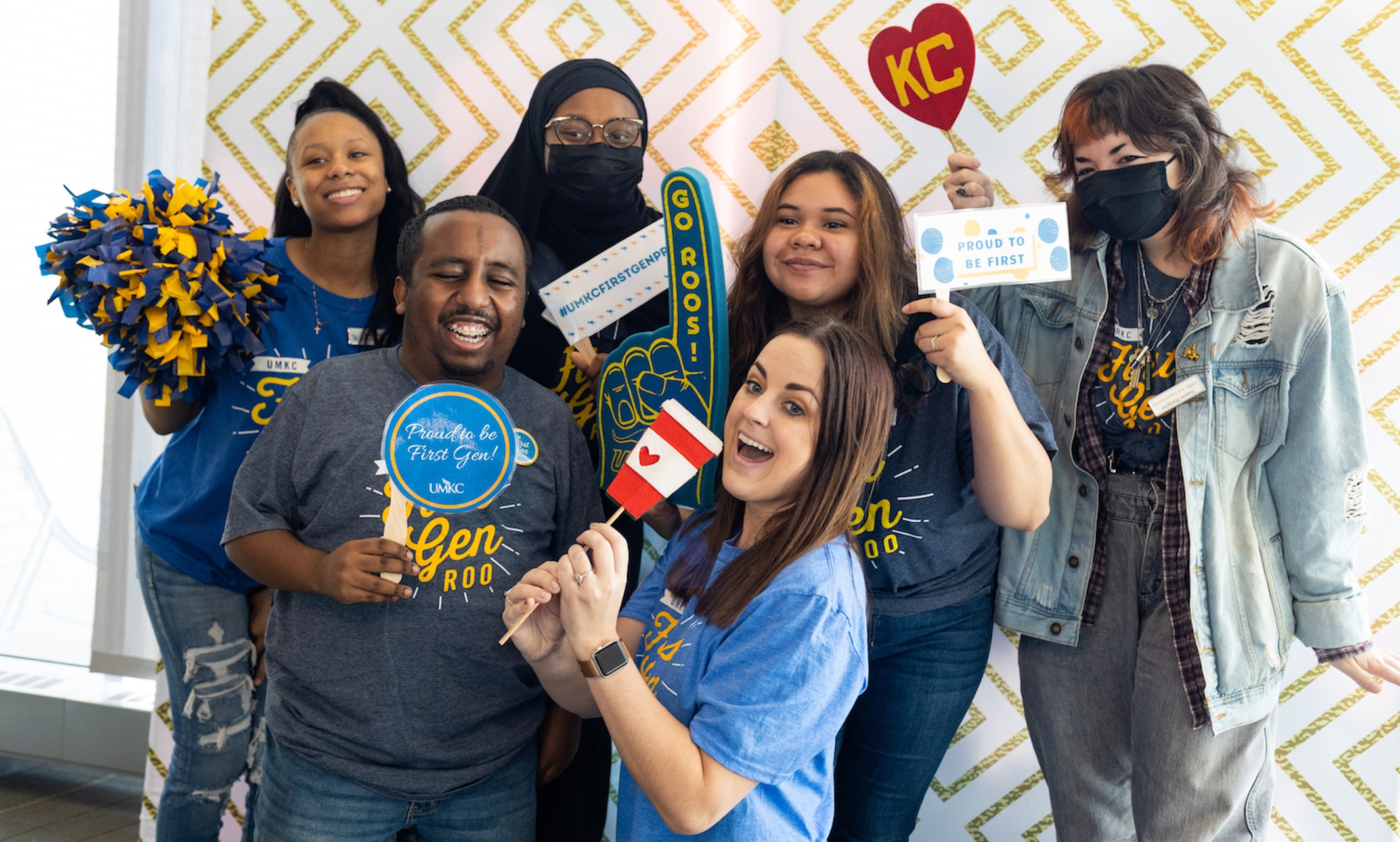
Connections and resources for first-generation students at UMKC
Student voices filled the air as peers and mentors mingled amongst each other with the occasional clash of jumbo Jenga blocks in the background in the Student Union as UMKC’s First Gen Roo Program celebrated the success of its students.
A National First-Generation College Student Celebration took place across the country on Nov. 8 and at UMKC, the activity revolved around the UMKC First Gen Roo Program, an initiative for first-generation students designed to increase student involvement, success and satisfaction and assist in GPA, retention and graduation goals.
The event kicked off with an informational resource fair in the morning, a professional photobooth available throughout the afternoon, an informational session “Networking Like a First Gen Boss” with Nabil Abas and special UMKC alumni guests Shae Perry (B.A. ’19, film and media), Kennedi Glass (B.B.A ’22, marketing), and Victor Michimani (B.B.A. ’21), followed by a discussion on the imposter phenomenon, and wrapped up with an undergraduate research panel.
There were numerous booths set up with First Gen Roo swag, a photobooth with props, caricature artist, peer mentors readily available for questions, and more.
This celebration highlighted the resources of the First Gen Roo Program which, along with First Gen Proud, helps in continuing as a First Gen Forward institution.
Starting college can be difficult for anyone but being the first one in the family to do it is even more frightening. This program is important because it offers the support and assistance that some students might miss out on when they are the first generation to attend college. There is something special about connecting with peers on another level who have been down the same path and can offer useful insight, as well as the bonds and friendships built from those connections.
Within the First Gen Roo program, students receive help navigating campus and becoming more involved, working with technology, and refining skills for academic preparation like time management and study skills, as well as social preparation such as decision-making, financial literacy, and other strategies for student success. Students are provided with many resources and opportunities like early move-in, resource workshops, and one-on-one meetings—all before the semester even begins. Once the semester has started, students can expect to have a peer-mentor available for additional support along the way.
In addition to being surrounded by peers in a similar situation, the program provides trained and dedicated mentors that are eager to help every step of the way. UMKC has a long-term commitment to discovering ways to break down barriers and assist first-generation students’ success here on campus and out in the community after graduation.
Jailyn Polk, freshman, criminal justice and criminology, said her favorite part of the program has been making friends before the semester started and how helpful it’s been meeting new people and building those bonds.
Program Coordinator Megan Elsen, who’s worked with first-generation students since 2009, says it’s vital to build a strong community of students and staff that focuses on social and emotional supports in college to create a safe space for those whose parents do not have the direct experience of navigating college.
"It's important for first-gen students to feel a part of the university just as much as other students. They need to feel like they belong," she says.
And as the program offers a place for students to connect with others and become more confident in themselves, their studies, and their overall college experience.
Nabil Abas, senior, communication studies, says that’s definitely been his experience. He reached out as a first-gen student and now he’s one of the support program specialists (mentors) with the program. “Tap into people who want to see you fly—who really care about you,’’ he says.
"You just have to find what works for you, and for me, it's First Gen Roos."
Nov 17, 2021
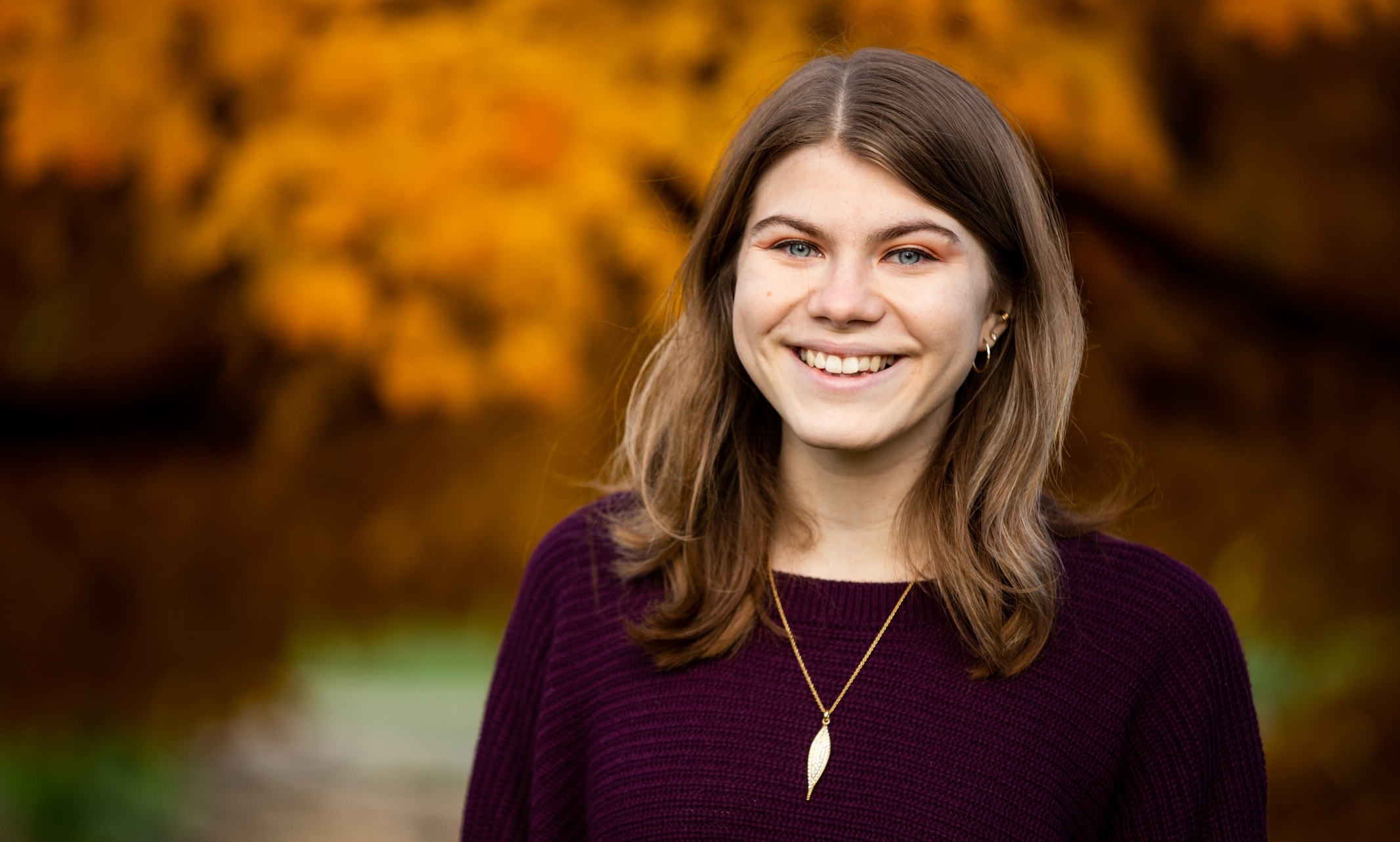
Six-year M.D. program provides opportunity to learn while serving the community
Our ongoing story starts with people from around the world, converging here at UMKC. Get to know our people and you’ll know what UMKC is all about.
Demi Elrod Anticipated Graduation: 2026Academic program: B.A./M.D. School of MedicineHometown: St. Louis, Missouri
Demi Elrod wants to be a doctor so she can help people, and she chose UMKC so she could streamline her education through the six year B.A/M.D. program. While she recognizes the challenges – the level of intensity and the fast-paced nature of the program – she likes that she will be finished in six years instead of eight. The accelerated program has helped Elrod improve the way she works and make meaningful connections.
“The course load has taught me a lot about how to prioritize my tasks and manage my time,” she says. “And another advantage is the mentoring that is available. Throughout the program I will receive guidance and counseling by my docent, who is a doctor within the School of Medicine.”
Since entering college, Elrod has discovered that she is interested in infectious disease and microbiology.
“Since the pandemic began, I have learned a lot about COVID-19 and the vaccine in my classes and during my experiences as a volunteer vaccinator,” she says. "These experiences and lessons have shown me how interesting infectious disease is, and how I can serve my community to aid in the pandemic.”
Elrod has participated vaccination events in underserved communities in conjunction with Our Healthy Eastside Kansas City (OHKCE), a community wide initiative that promotes and delivers COVID-19 vaccinations and other health services to residents on the east side of Kansas City. While the events are geared toward providing COVID-19 vaccinations and information related to the virus, they also offer other health services such as pre-diabetic and blood pressure screenings.
She says working at the vaccination events has been an unforgettable experience that’s helped solidify her choice to practice medicine.
“It’s shown me a lot about how important medicine is, and how important it is to bridge the gap between community and medical services. The message of OHEKC is, ‘You don’t have to come to us – we can come to you to help.’ Getting that message out builds trust between the community and health care providers.”
Elrod says attending medical school and the experiences it has provided have inspired her to be intellectually curious about the world around her.
“Over the past year and a half, I have learned so much about the world of science and medicine. I cannot wait to learn even more in the upcoming years.”
Nov 15, 2021
The Tenant Representation Initiative team estimates they have successfully settled up to 85 percent of their cases
When the federal eviction moratorium for COVID-19 expired in August, many renters found themselves in need of legal representation. The Truman Fellows, sponsored by UMKC, started the Tenant Representation Initiative to help. Brian Larios, UMKC School of Law adjunct clinical professor and managing attorney for Tenant Representation Initiative, recently spoke with KCUR about the program. Listen online.
Nov 15, 2021
KSHB reports some pharmacies are adjusting hours due to a shortage of pharmacy technicians
Sarah Oprinovich is a pharmacist and a professor the the UMKC School of Pharmacy. She said that staffing shortages may mean patients will wait longer for their prescriptions. Read more.
Nov 12, 2021
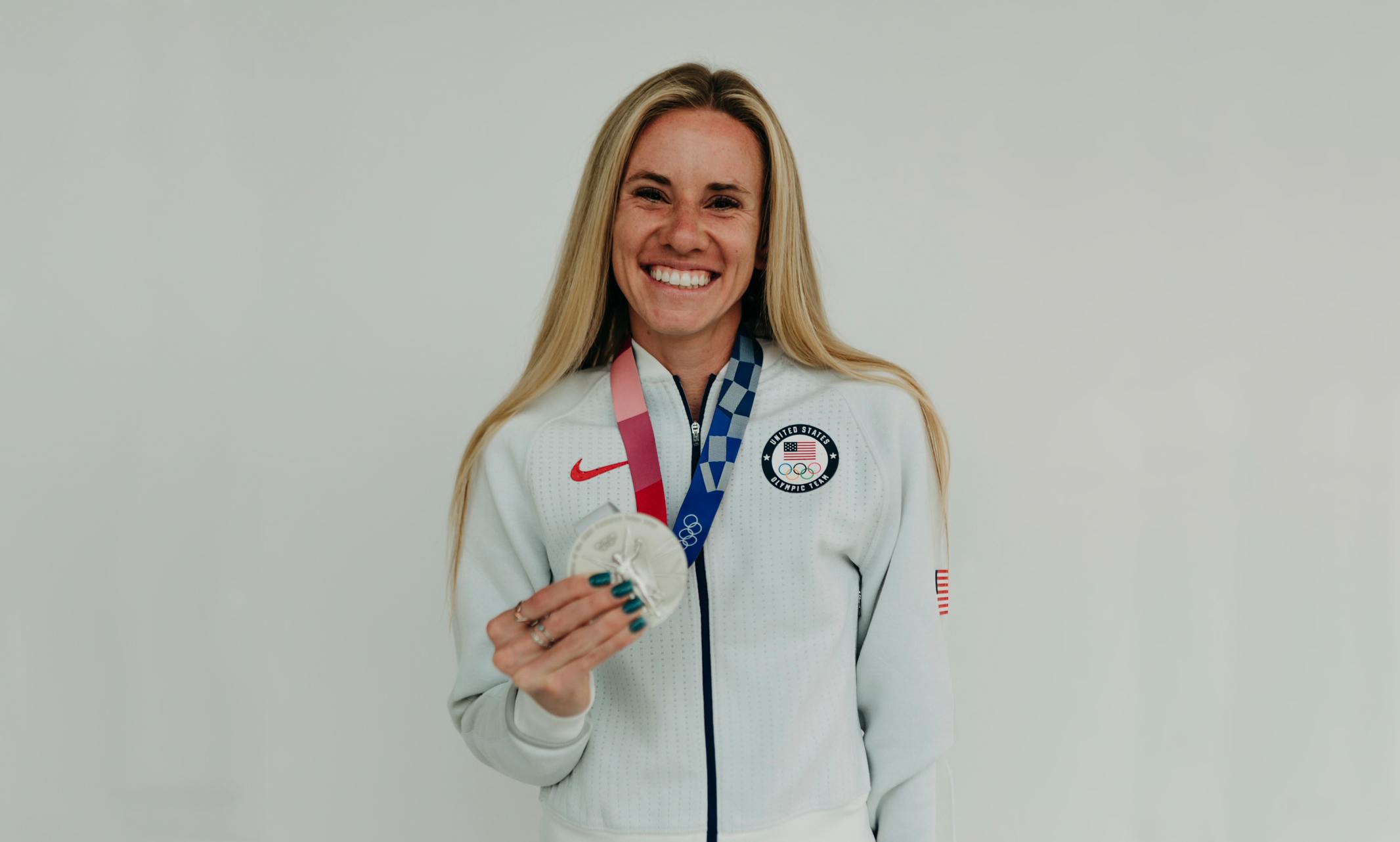
Track and Field superstar Courtney Frerichs will welcome Class of ’21 to join her in ranks of UMKC alumni
Olympic silver medalist and UMKC alumna Courtney Frerichs (B.A. ’15) will speak at the “Roos in the City” commencement celebration for the Class of 2021 at the T-Mobile Center.
The mid-year commencement will take place Sunday, Dec. 19 at 3 p.m. at Kansas City’s downtown arena. There will be a single ceremony for all academic units. More than 1,000 graduates are expected to participate.
Anyone who would like to submit messages of congratulations to our graduates can do so using this online form.
Frerichs raced to a silver medal at the Tokyo 2020 Olympic Games in the 3000-meter steeplechase. During her athletic career at UMKC, the native of Nixa, Missouri, was an 11-time conference champion, five-time All-American and set seven school records that she still holds. She graduated summa cum laude from UMKC in 2015 with a bachelor of arts in chemistry.
Upon completing her NCAA eligibility, she signed a professional contract with Nike and joined the Bowerman Track Club. She has competed professionally for the last five years, during which she has made two Olympic teams (2016, 2020), three World Championship teams and won a silver medal at the 2017 World Championships. After the 2020 Olympics, she reset her American record in the event, becoming the first American woman to break the nine-minute barrier.
She currently lives in Beaverton, Oregon and is married to fellow Roo Griffin Humphreys (B.B.A. ’16). She trains full-time while also pursuing a master of science in nutrition at Auburn University.
Nov 12, 2021
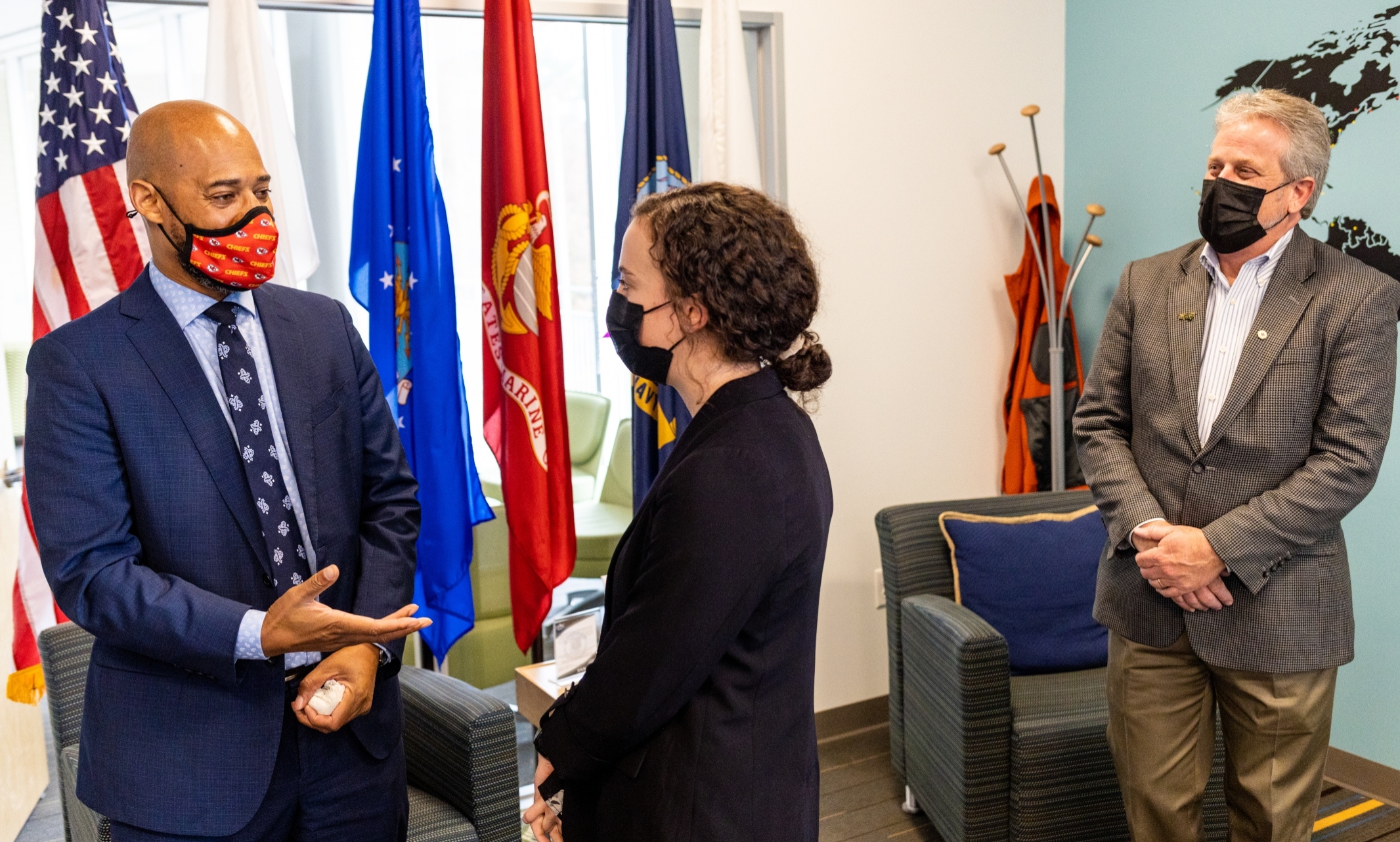
Couple honors their late son through education support for veterans
The Spencer C. Duncan Make It Count Foundation donated $10,000 to the Spencer C. Duncan Make It Count Fund at the University of Missouri-Kansas City to further educational opportunities for United States veterans.
Spencer C. Duncan, a U.S. Army Reserve door gunner, died in combat in the largest single-incident loss of U.S. lives in Operation Enduring Freedom in Afghanistan. While his family was grieving, they decided the best way to honor Spencer, an Olathe, Kansas native, was to help other servicemen and women.
“Our family really wanted to shut other people out and grieve,” Dale Duncan, Spencer’s father and chairman of the board of the Spencer C. Duncan Make It Count Foundation says. “But we knew that our son wouldn’t have wanted that.”
Following Spencer’s death, a family friend recommended organizing a 5K run in his honor. His family decided this would be a great way to honor Spencer and help others. The event raised $20,000 that year and has raised more than $900,000 in its ten year history.
"These student veterans receive more than just money towards their expenses. It also shows that UMKC has community partners who support the student veteran population and want to see them succeed.” — Eric Gormly
Jason Parson, BA ’99, president and CEO of Parson & Associates, LLC, and a veteran who served in Iraq, is president of the board of the Make it Count Foundation.
“I joined the military when I was 17 years old,” Parson says. “It was the greatest decision I ever made. It’s been the foundation of all my success. I hope we can continue to grow this partnership and help more veterans earn their degrees.”
Shelby Manning, who is currently pursuing her master’s in business administration and has plans for law school; and AJ Sharif, a first-generation student determined to get his master’s in business administration; are two UMKC student veterans who have received scholarship support through the Make It Count Foundation.
Eric Gormly, assistant director of Veteran Student Support Services notes that this support makes a significant difference.
“These generous gifts can help reduce some of the stress a student veteran may be having and allow them to focus more on their schoolwork rather than how they are going to afford books. But these student veterans receive more than just money towards their expenses,” Gormly says. “It also shows that UMKC has community partners who support the student veteran population and want to see them succeed.”
Nov 10, 2021
Ken Novak said cities need a portfolio of strategies
Novak is currently a Professor of Criminal Justice and Criminology. Read his interview with the Kansas City Star here. (Subscription required)
Nov 10, 2021
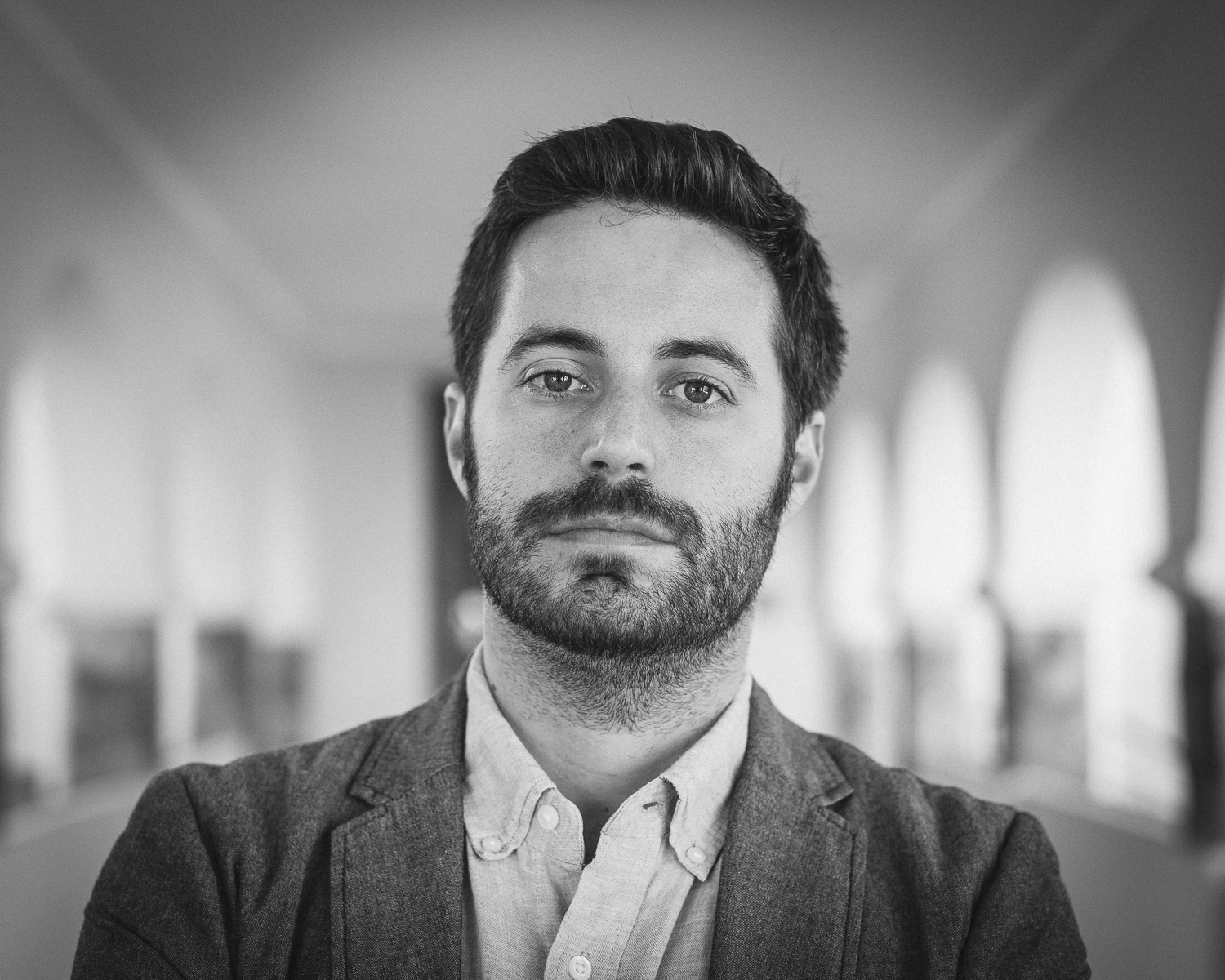
Garrard Conley shares life story of overcoming the trauma of conversion therapy
New York Times Best Selling author Garrard Conley shared his story of surviving conversion therapy during the 15th annual UMKC Pride Lecture on November 9.
The lecture, presented by the UMKC Division of Diversity and Inclusion, covered his journey of removing from the trauma of conversion therapy and how to meet hate with compassion.
In his memoir Boy Erased, Conley recounts his childhood in a fundamentalist Arkansas family that enrolled him in conversion therapy during his college years. The book was later adapted into a film by the same name in 2018. It featured Nicole Kidman, Russell Crow and Lucas Hedges, who was nominated for a Golden Globe in his role based on Conley.
Conley is now an activist and speaker, lecturing at schools and ventures across the country on radical compassion, writing through trauma and growing up gay in the South. He also works with other activists to help end conversion therapy in the United States and abroad.
Below are some highlights from his presentation, delivered live over Zoom:
Please note: This lecture features content that some may find upsetting- including mention of sexual assault.
Life growing up
Conley grew up in a small town of roughly 100 in the Mississippi Delta region of Arkansas. Every aspect of his life revolved around the local Missionary Baptist Church, he said.
"All of our gathering, pot-lucks, you name it, was all taking place there. We didn't even have a general store, that was our whole world," Conley said. "The way these people thought, was the way that we thought because that's really the social glue that held our lives together."
Through his church, Conley said he had beliefs instilled into him that included the idea that women were not permitted to hold positions of power and that marriage was strictly between a man and a woman.
As he was entering his teen years, Conley began to question his own sexuality, right around the time Matthew Shepard was murdered. Shepard was a student at the University of Wyoming who was beaten, tortured and left for dead on a fence post — many believe because he was gay. His death sparked conversations nationwide about what it meant to be gay in the United States.
"I was thinking to myself, 'I don't know exactly what I am, but I don't feel comfortable with any of this.' My parents had no idea that I was gay, but if they had known they would have been sacred out of their minds that would have been me tied to the fence post," Conley said.
Conversion therapy
While in college, Conley confided in his roommate, a friend from high school, that he was questioning his sexuality. Conley's roommate responded by sexually assaulting him and confessing that he sexually assaulted another young boy at a church camp.
Conley reported his roommate to his school's administration. His roommate sought revenge on Conley by outing him to his family.
"My dad gave me an ultimatum that if I didn't go to conversion therapy, that I wouldn't see my mom or my dad again, I wouldn't continue my education and I wouldn't be allowed to step foot into the house again," Conley said.
Conley then began attending a six-month period of Bible-centered therapy sessions every weekend, which culminated in a two-week conversion therapy camp that left him suicidal.
When he first began thinking about writing a book on his life experiences, Conley said he had to face some hard questions about his journey and his relationship with his family.
"When you are writing a memoir you have to think in terms of the big picture. The question I kept coming back to was, what really brought our family to the doors of (conversion therapy)?" Conley said. "What brought a loving family to this place? What brought my mom and dad to make that decision, and most importantly, why did I agree to go? I struggled with these questions for years."
Changing minds
Conley said he hopes his work has an impact on the fact that people can choose to live a more compassionate life.
"I realize that in 2021 that can often sound naive. It seems like everyone is yelling at each other and there is no understanding and no real desire to actually speak the truth to people. But in my life, what I have seen, that is not always true," Conley said.
Every person can instill compassion into others through the art of communication, Conley said, and by sharing his story he hopes to show others that change is possible.
"People can actually change, not that they can change their sexuality because they can't, but they can change how they feel about other people and they can grow and become more compassionate," Conley said.
Nov 10, 2021
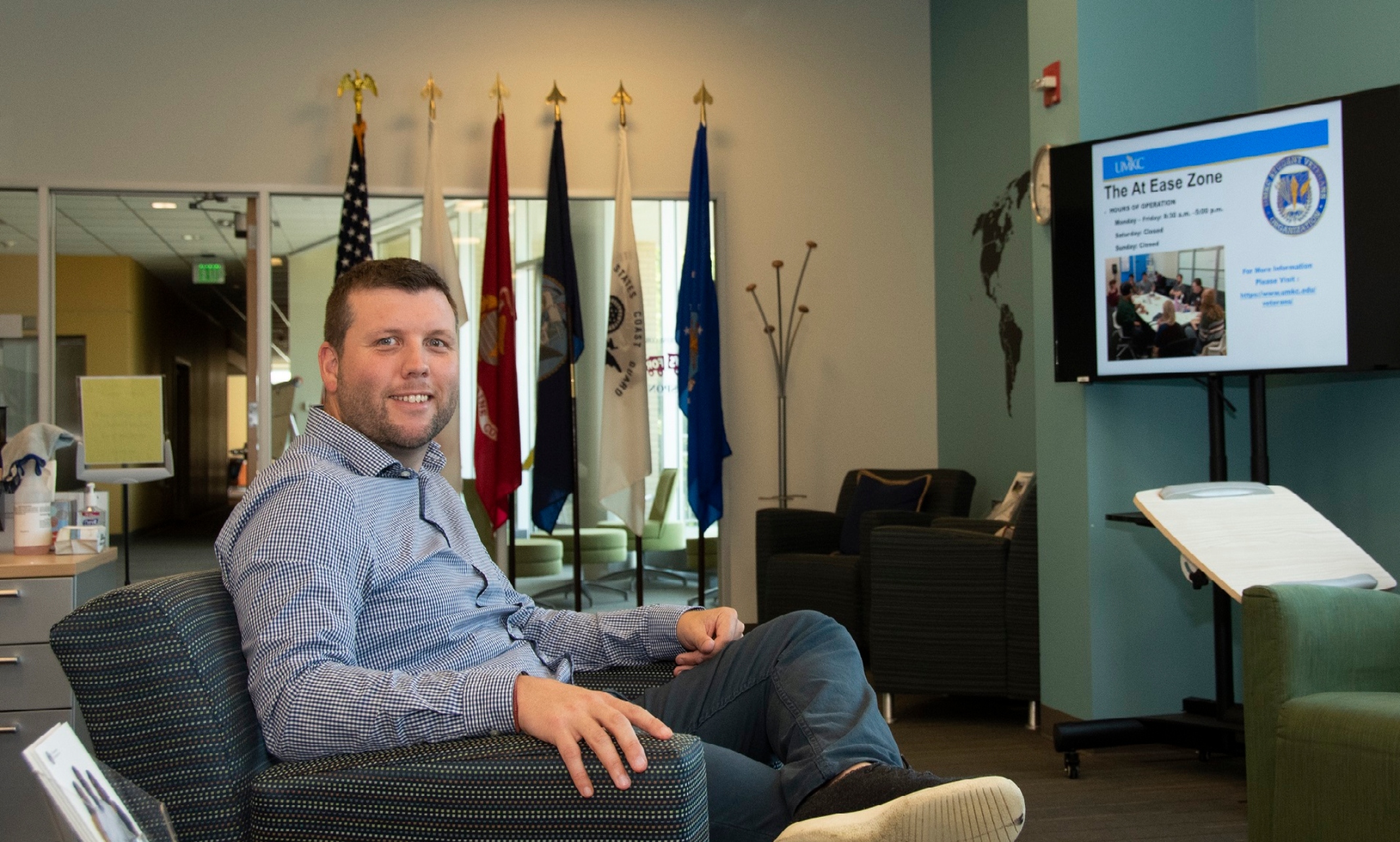
Resource for veterans has convenient home in the Student Union
Eric Gormly, assistant director for Student Veteran Support Services at UMKC, oversees the At Ease Zone, a resource center for veterans on campus. His background gives him keen insight into student veterans’ needs.
While in the U.S. Marine Corps, Gormly was deployed to Hurricane Katrina, Iraq and Peru. When he completed his service, Gormly, a Kansas City native, took advantage of his G.I. Bill and enrolled in community college to pursue a degree in law enforcement and worked in the Veterans’ Affairs office.
“After a couple of semesters my academic advisor said, ‘You talk a lot about helping vets. Are you sure you want to go into law enforcement?’”
He realized that helping veterans was his calling. Gormly has spent 10 years working in higher education establishing programs to make the transition to college easier for veterans, and to help them feel a part of campus life.
“Veterans go from a highly organized structure in the military to no structure at the university. We help with the transition.” — Eric Gormly
“There is culture shock on re-entry,” Gormly says. “Veterans go from a highly organized structure in the military to no structure at the university. We help with the transition.”
In order to be better informed of veteran enrollment, there is an opportunity for applicants to identify veteran status on the UMKC admission application. Gormly’s office uses that to contact and connect with students who might benefit from services his office provides. While that form provides some basic information about veterans on campus, Gormly recognizes that all veterans do not have the same needs.
“We know who receives benefits, but there’s a wide range of student veterans,” Gormly says. “Also, the military doesn’t do a great job explaining the benefits, and some veterans may not be clear on how to use them.”
The At Ease Zone can be a great place for veterans to find resources. Located in Student Union, the At Ease Zone also provides a comfortable spot on campus for military-affiliated students to study, socialize and connect with staff and each other.
There are 156 new veteran students at UMKC this semester.
“I call every incoming student,” Gormly says. “We push that out. They don’t have to ask. They may need help to connect on campus. For some students, groups are better, for others one-on-one meetings work best. We try to find the best fit.”
Regardless of their preferences, Gormly notes that having a visible location on campus has made a significant difference in the way they can provide services with a variety of resources beyond being a place to relax and do homework.
“There are computers available, and students are welcome to come in to study or do Zoom classes. We have tutors, academic coaches and a 32-inch display with resources including veterans’ organizations on campus and information on the Kangaroo Pantry.”
He says with students back on campus this semester, they have been able to do more events, including volunteering.
“There are many opportunities for student veterans to get involved. Every home Chiefs football game, 20 student veterans volunteer with the Chiefs organization for pre-game activities.”
Building these connections is critical to student veterans’ success. Kavitha Reddy, BLA ’99, MD ’00, is associate director of Employee Whole Health in the Veterans’ Health Administration Office of Patient-Centered Care and Cultural Transformation and assistant professor in Emergency Medicine at the Washington University School of Medicine. Throughout her career, she has been an advocate for veterans’ health through a variety of resources in and outside the hospital setting.
“Places like the At Ease Zone are perfect places for veterans to be proactive about their health and well-being,” Reddy says. “For the men and women who went into the service relatively young – often 18 years old – they are facing a lot of new challenges along with mental and physical health issues. Civilian life may seem fragmented, and taking care of themselves, mind, body and spirit, is incredibly important
“The university establishing a safe space that is visible on campus is significant.”
Gormly is excited about the opportunities ahead.
“Vets face a lot,” he says. “They are often confronted with the idea that veterans have trouble adapting, but being in the military often helps us to adapt. These students bring a different level of commitment with maturity, motivation and persistence.
Our office provides training for faculty and staff to understand a vet’s mindset. There are so many positive qualities that they bring to campus. We hope to expand.”
For more information on services or to volunteer contact Eric Gormly at gormlyea@umkc.edu or 816-235-5599.
Nov 08, 2021
Beth Vonnahme, Ph.D. helped put the increased turnout and election results into perspective
Vonnahme attributed the increase in turnout to a variety of factors. Read more
Nov 08, 2021
Emily Wesley was recently in The Kansas City Business Journal
Wesley lost both her parents to health complications at a young age. Inspired by one of her father's doctors, she now studies Biology and works in a research lab at the Stowers Intitute. She also founded a peer mentoring group on campus. Read more.
Nov 08, 2021
William Black suggests people buy gifts early
Black, an associate professor in economics, said supply chain shortages and delays will make the typically busy holiday shopping season even tougher this year. Read more.
Nov 08, 2021
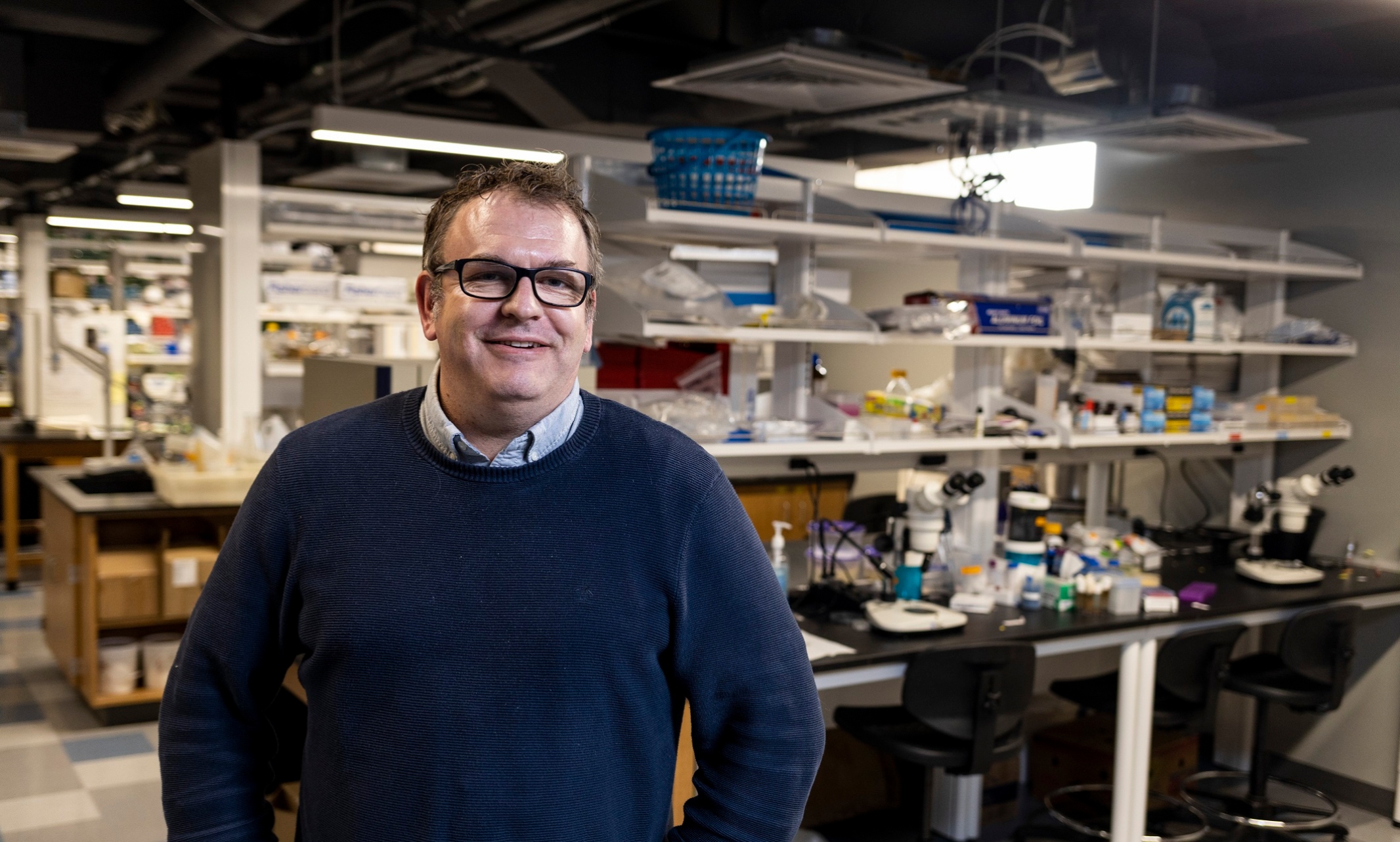
Successful research on flies furthers advances for humans
Stephane Dissel, Ph.D. fell in love with biological research as an undergraduate in his home country of France thanks to his natural curiosity, his love of the lab and a little luck. His interest in the connection between Alzheimer’s disease and sleep came later.
During his undergraduate studies, Dissel focused on immune response using flies. His current research studies the effect of sleep on flies’ brains and the ability to manipulate the expression of specific genes to affect memory. Sleep ensures that everything gets connected in the right way Dissel says.
“Every animal on the planet has to sleep.” Dissel says. “Depriving people of sleep has been used as a method of torture,” he says. “People start by losing their sanity, but eventually they could die. It’s essential. Every species, every animal sleeps.”
Dissel says sleep is important for the development and the wiring of the brain.
“It helps ensure everything works properly. Even in the animal kingdom, babies sleep more in early life. But as people age, they tend to sleep less, and their sleep is less efficient.”
“The question is, are these people developing Alzheimer’s because they have sleep problems, or do sleep problems increase with Alzheimer’s?” — Stephane Dissel
Dissel notes that it’s common for people in their 40s and 50s to start sleeping less and less. Sleep during this time becomes less deep, which makes it more likely that people will wake up in the night. He says that most neurodegenerative diseases come with a sleep deficit component.
“The question is, are these people developing Alzheimer’s because they have sleep problems, or do sleep problems increase with Alzheimer’s?” Dissel says. “This is still up for debate. But what I know for sure is that if you can improve the quality of sleep, you can delay or diminish the onset of severe Alzheimer’s.”
He says flies are critical to his research because their brains allow for precise, targeted manipulation. The way that humans sleep, and flies sleep are obviously different, but there are commonalities that allow the research to apply to human conditions.
“At the end of the day it’s about healthy memory– or plasticity. We are trying to understand which neurons in the brain are underlying the benefits of sleep on plasticity. If we can identify the important cells, we can manipulate, activate or silence them. “
While there is no “cure” for Alzheimer’s on the horizon, Dissel is heartened that there is a lot of funding available for this research. He also notes that there is good news.
“We know from our research that, in a fly that has a genetic mutation that leads to memory impairment, making sleep more efficient enables the brain to find an alternative way to bypass that mutation and restore memory.”
“It’s never quick enough, but little by little we will find a way to prevent the disease.”
He says the means of inducing sleep are less relevant than the sleep itself.
“We can increase the quality of sleep in different ways. We can activate specific neurons in the fly brain which we know are sleep inducing. We’ve also used drugs for pharmaceutical activation, and it leads to the same conclusion. No matter how you do it, increasing sleep in flies makes memory better.”
He notes that part of the challenge with Alzheimer’s disease is that it is complex and controlled by genetic, environmental and lifestyle factors.
“You can’t pinpoint a single gene that triggers the disease. In some cases, there are multiple gene mutations, which can lead to increased risk. There are so many possible causes that lead to this disease, it’s very difficult to find a treatment strategy that is applicable to everyone.”
Still, he is confident in the progress that is being made, though it’s often in incremental steps.
“It’s never quick enough, but little by little we will find a way to prevent the disease. Even if we cannot cure it now, I’d consider it progress if we can delay onset, lessen the severity or improve the quality of life. I’m much more optimistic about this right now because I know it’s doable.”
Nov 05, 2021
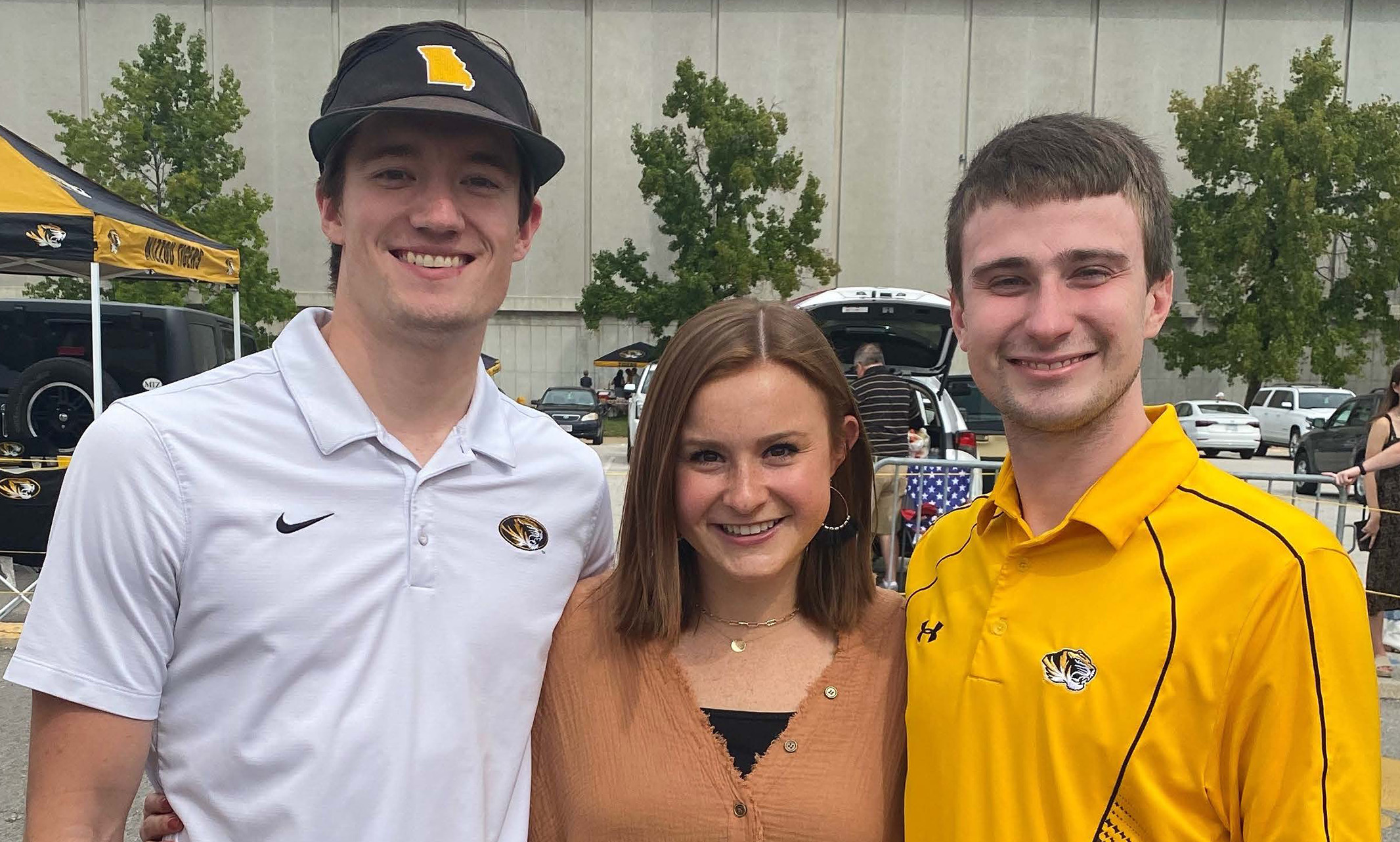
Run to the Clinical Pharmacy Challenge final four follows UMKC’s 2020 national championship
UMKC School of Pharmacy students Zach Carroll, Allison Baker and Austin Dockins have a certain chemistry with one another. After all, they’ve been together since what seems like forever.
It’s a connection that helped them make it all the way to the semifinal round of this year’s national Clinical Pharmacy Challenge sponsored by the American College of Clinical Pharmacy.
“The three of us have been friends since elementary school so it has been fun to see how much we’ve learned over the years together,” Baker said.
They met as third graders at Mill Creek Elementary School in Columbia, Missouri. They graduated together from Columbia’s Rock Bridge High School. The three fourth-year pharmacy students even discovered a common interest working at the same local pharmacy while completing their undergraduate degrees.
“All of us enjoyed working there and we individually decided to apply to pharmacy school,” Dockins said.
It wasn’t until after each had submitted their applications to attend UMKC’s School of Pharmacy at the University of Missouri’s Columbia campus, that the trio realized they would be continuing their college careers together while following similar career aspirations.
“We didn’t talk about applying to pharmacy school until after we all had submitted applications,” Dockins said. “We were all a little surprised that each of us had made the decision to apply, but we were excited to take on the adventure together.”
Earlier this year, that journey culminated with the three battling their way to the national semifinals of the annual AACP Clinical Pharmacy Challenge.
The competition pits three-person teams from pharmacy schools and colleges against one another in a quiz bowl–type format. It began in September with more than 90 teams from across the United States. Each round of the competition consisted of trivia/lightning, clinical case and Jeopardy-style segments with questions prepared by expert clinical pharmacy practitioners and educators.
“It’s been great to work together as a team,” Baker said. “Throughout school, most assessments are individual, so this has been a neat opportunity to collectively think through questions, use each other as resources and pull from our unique rotation experiences to answer questions.”
The UMKC team successfully navigated the first five rounds to reach the national semifinals before being eliminated from the competition. The trio credited their UMKC pharmacy professors for their preparation, both the competition as well as their future careers as pharmacists.
“Competing against intelligent students from prestigious universities across the country was a really neat opportunity,” Dockins said. “We feel very accomplished and proud that we were able to make it to the top four.”
Dockins said that he, Carroll and Baker have participated in team competitions as an opportunity to reinforce how much they’ve learned throughout pharmacy school.
“We really just compete to see how well we will do,” he said. “We don’t have huge expectations when entering, although each one of us has a bit of a competitive spirit. We know that each one of us brings something different to the table and we know each other so well that it’s easy to communicate during these competitions.”
Their sprint to the final four is the continuation of what is a growing legacy of excellence for the UMKC School of Pharmacy on the national stage. Last year, the UMKC team of Jamie Sullivan, Kathryn Rechenberg and Brooke Jacobson won the Clinical Pharmacy Challenge national championship.
Nov 04, 2021
The Latinx Education Collaborative teamed up with researchers from the Urban Education Research Center (UERC) to generate a “landscape analysis” of...
UERC is a research and evaluation center within the University of Missouri-Kansas City School of Education. Read the story
Nov 03, 2021
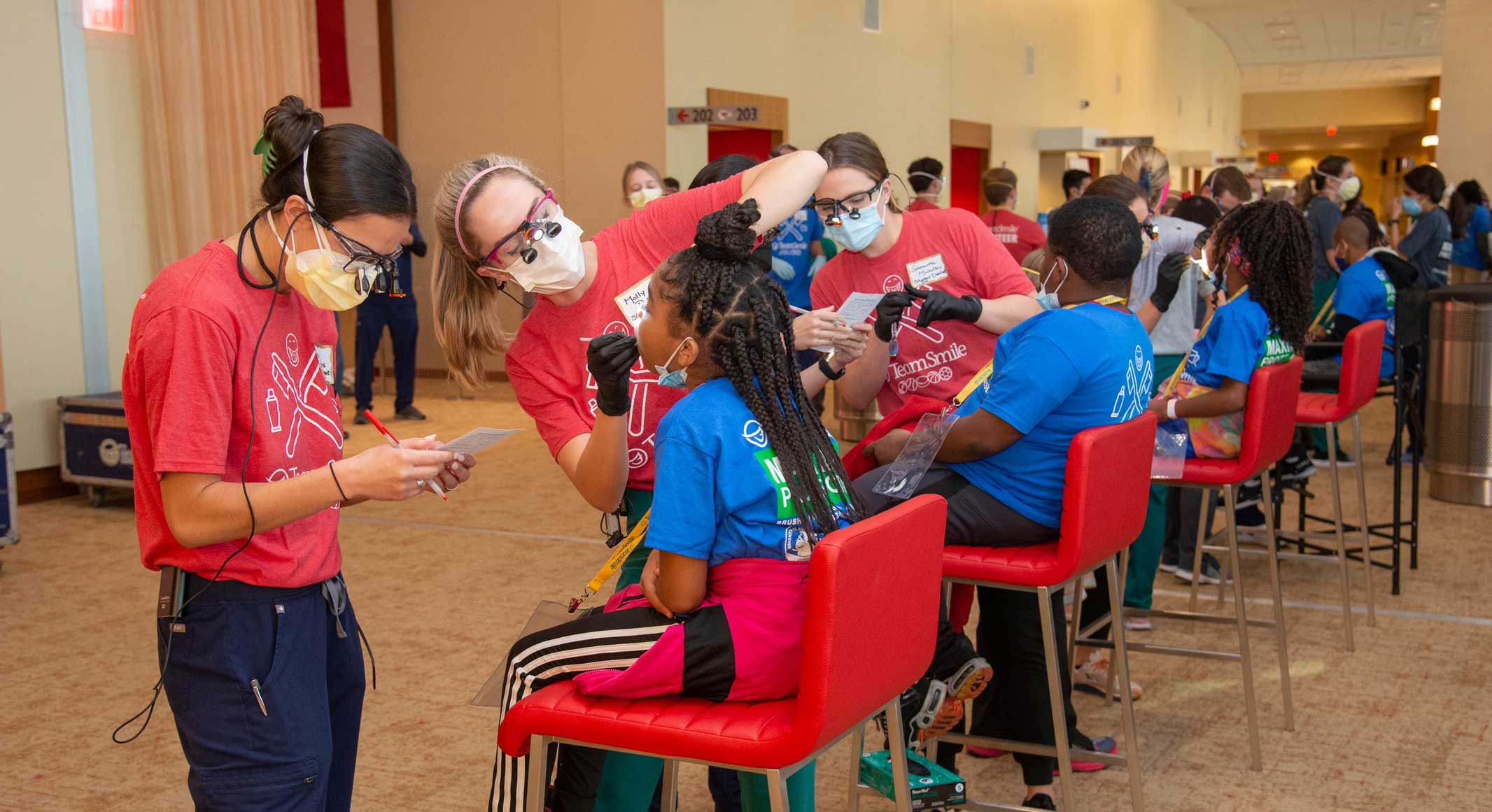
School of Dentistry, TeamSmile, United Way and Chiefs make a great team
Pearly whites were plentiful as well as Chiefs red at the TeamSmile event at Arrowhead Stadium on Oct. 26. Students from the UMKC School of Dentistry volunteered at the event, delivering much-needed dental care to 200 local elementary students.
Sponsored by the United Way, more than 40 students and faculty from UMKC participated, providing initial dental screenings, X-rays and recommendations for what care the kids would need that day. Each year, dentistry and dental hygiene students participate in three TeamSmile events: at the Kansas City Chiefs, Royals and Sporting KC.
Started in Kansas City, TeamSmile is a national advocacy group that works with professional and college sports teams to provide children in need with a life-changing dental experience. For those youngsters who may have a fear of the dentist, seeing their favorite athletes can help put them at ease. The friendly faces of UMKC students help, as well.
Since the organization’s inception in 2007, UMKC School of Dentistry students and faculty have volunteered their time with TeamSmile. The organization provides comprehensive care to the children who participate, from preventive care such as fluoride treatments and cleaning to extractions and root canals.
“We’re incredibly proud to have been involved with TeamSmile for over a decade,” said Becky Smith, one of the faculty members who accompanied the students at the event. “It gives our students the opportunity to hone their skills, provide dental care to some of our youngest citizens of Kansas City, and help instill the importance of volunteerism going forward.”
Nov 03, 2021
The U.S. Department of Education’s Trio program is designed to provide services for students from disadvantaged backgrounds.
The University of Missouri-Kansas City found that 40% of students in the state’s largest university system have no immediate relatives who went to college. Read the article
Nov 03, 2021
Dr. Mary Anne Jackson has been studying infectious diseases for more than three decades.
The Kansas City Business Journal recently highlighted Dr. Jackson for her role in the COVID-19 pandemic response for the state of Missouri and the University of Missouri - Kansas City. The article also showed the impact that the UMKC School of Medicine has had on rural health in Missouri, teaching future doctors about social determinants of health and its recent ranking among the top Primary Care residencies on U.S. News and World Report’s Best Graduate Schools list. Read more
Nov 03, 2021
Over the next year, Kansas City, Missouri, will study the effectiveness of three pilot programs designed to repair sidewalks.
The city, along with partners at the University of Missouri-Kansas City Department of Civil and Mechanical Engineering, Gunter Construction and Rubberway, will study how a rubber sidewalk near East 41st Street and Kenwood Avenue holds up in the snow, ice, rain and to heavy foot traffic. Learn more
Nov 03, 2021
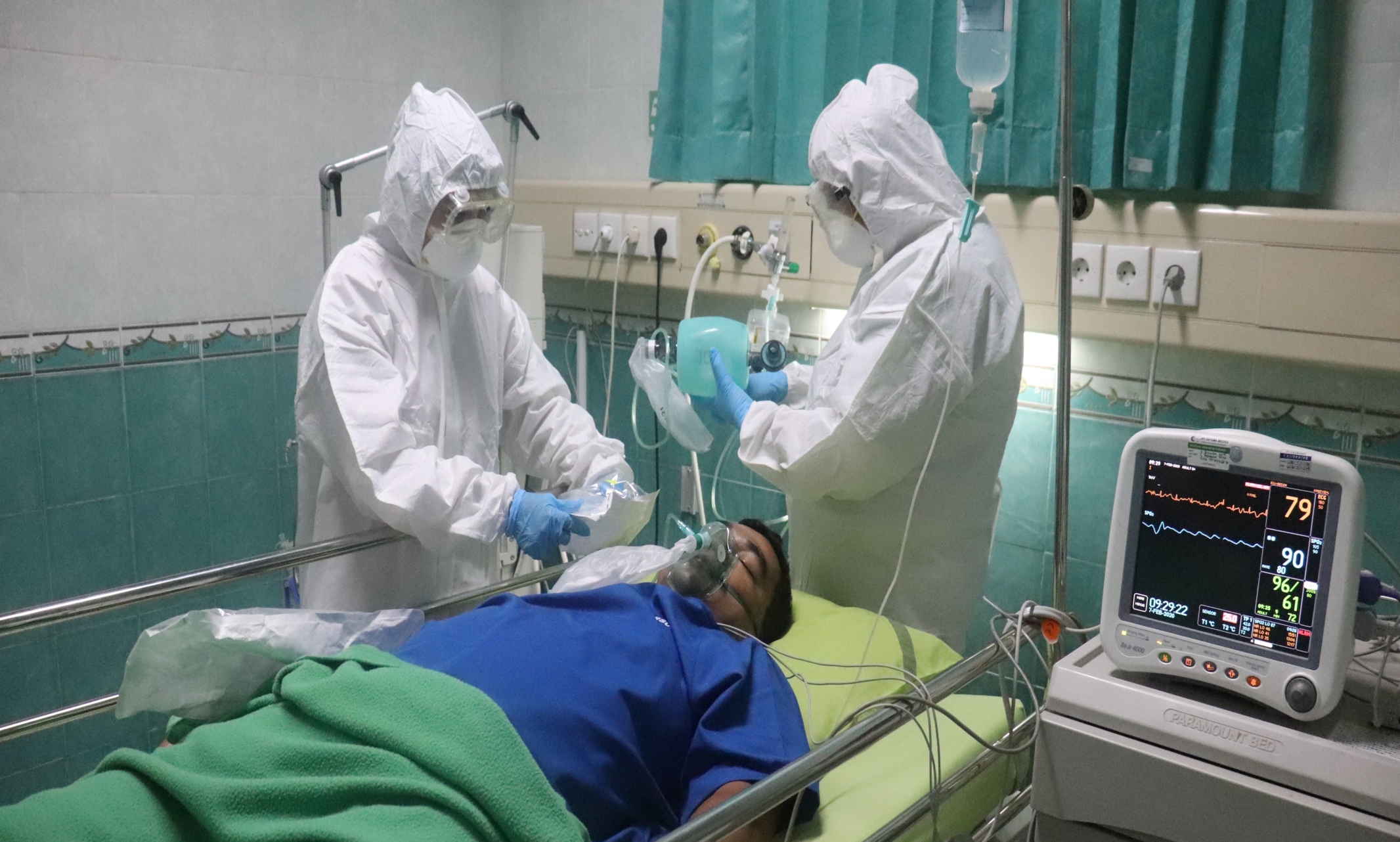
Bloch assistant professor Karen Landay recently led a study to see how passion helps fight stress and burnout amid COVID-19
Assistant professor Karen Landay, Ph.D., has always been fascinated by the connection between work and passion. Inspired by her first career as a violinist, the assistant professor of management at the Henry W. Bloch School of Management now focuses her research on work passion.
“That’s really stuck with me, this idea of passion as a really important part of our work and as this force that helps us get out of bed in the morning and go and do what we do,” she said. So, when the COVID-19 pandemic threw health care workers into some of their most challenging circumstances ever, she was curious if passion helped them avoid stress and burnout during the darkest of days. Landay said she was particularly interested in the effects of two different types of passion, harmonious and obsessive. Harmonious passion, Landay explained, is a voluntary passion that is under our control and stems from a love of a job. Obsessive passion is involuntary passion that can be all-consuming and uncontrollable. Landay said the latter form of passion can stem from pressures like workaholism or expectations from loved ones.“Harmonious passion is generally a good thing that leads to other good things. Obsessive passion is a lot more mixed. It’s not always bad, but it’s not universally positive like harmonious passion,” Landay explained. Landay enlisted the help of a professor at another university and her Bloch School graduate assistant, Allen King. From November 2020 to January 2021, the team sent a series of surveys to dozens of nurses across the United States. They asked them about their jobs, the level of passion they have, what was behind their passion and questions to gauge their stress level at various points throughout the pandemic. Landay expected to find that nurses who had harmonious passion would have decreased levels of stress and burnout, while nurses who had obsessive passion would experience increases. Instead, she found that nurses who were passionate about their work had less stress and burnout regardless of the type of passion they had. Landay said her team believes that timing may have played a role. When the surveys were conducted, vaccines were only recently becoming available and nurses had endured month after month of extraordinary circumstances with no end in sight.“It’s possible had we conducted our study six months later, perhaps we would have found those different results for those different types of passion,” said Landay. That is exactly what her team hopes to find out in a follow up study that is kicking off soon. This time, the surveys will also include many other types of first responders in addition to nurses including doctors, firefighters, police officers and EMTs. They hope to have a large enough sample to separate the nurse data out, compare it to the 2020 data and see how things have changed since last year.In the meantime, Landay said her findings can be a valuable tool for health care employers as they look for ways to support an overburdened, pandemic-weary workforce. “It’s not expensive. You can have small support groups, things like that. Encourage people to talk about it, but it’s not like you’re having to buy equipment or those kinds of things. So it’s kind of the best of both worlds. It could be a fairly cost-effective solution that could have a big impact,” said Landay. “These are some really intriguing preliminary findings. We’re excited to pursue this and see where it goes and hopefully be able to make a difference for some people.”
Nov 02, 2021
Providence Medical Center recently added Certified Nurse Midwife Emily Fox, MSN, APRN, CNM, to its healthcare team.
Fox received her Bachelor of Science in Nursing from the University of Missouri – Kansas City and Master of Science in Nursing with an emphasis in nurse midwifery at Frontier Nursing University, Versailles, Kentucky. She is board-certified by the American Midwifery Certification Board. Read more
Nov 01, 2021
